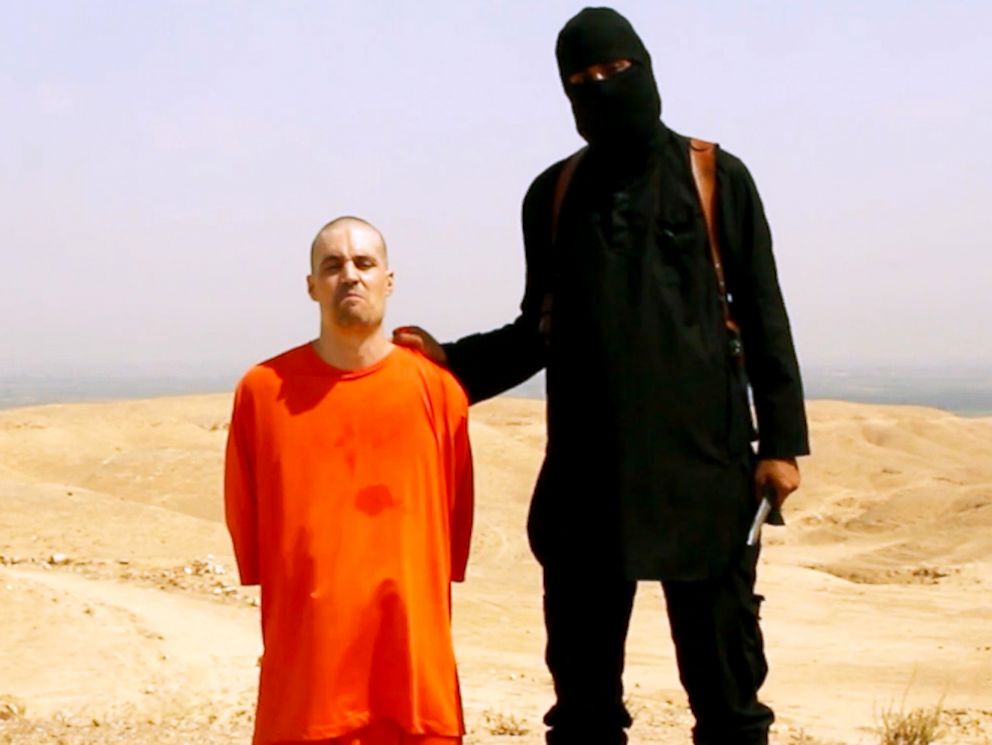US Hostage Families to Be Briefed on Potential Policy Changes
After deaths of American hostages, Obama ordered review of U.S. policy.
— -- Some families of American hostages, their representatives and former hostages will travel to Washington next week to be briefed by U.S. officials on a likely overhaul to the way the U.S. government approaches hostage situations, U.S. officials told ABC News this week.
Obama administration officials have informed some of those invited that they'll receive on Wednesday a "full overview of the results" of a hostage policy review conducted by a team of experts for the National Counterterrorism Center. Officials also offered their willingness to "get any additional feedback or comments" at the meetings from participants in the review, according to some of those invited.
The hostage policy review was ordered by President Obama last fall after the Iraqi terror group ISIS began publicly executing Western journalists, aid workers and others in gruesome videos that captured the world's attention. Since then, 82 families of hostages both living and dead, and others linked to past incidents stretching back more than a decade as well as ongoing cases, were invited to participate in the NCTC review. Of the 82, 24 families were subsequently interviewed by officials, a senior official told ABC News on Monday.
Like next week’s briefing, families of 9/11 victims were similarly briefed privately in 2004 ahead of the public release of the 9/11 Commission's final investigative report, in which many of the relatives were deeply involved.
Some family members, such as Diane and John Foley, the parents of war journalist James Foley who was beheaded by ISIS in August, have been harshly critical of the government's treatment of families, including perceived threats to prosecute any who paid terrorists ransom. The Foleys told ABC News last September that they were warned three separate times by U.S. officials not to try and raise money to pay their son’s ransom.
But Diane Foley has told ABC News her family met with NCTC officials anyway, including the review team's leader, Army Lt. Gen. Bennet Sacolick, a former commander of the elite Special Forces hostage rescue and counter-terrorism unit, Delta Force.

The final recommendations are expected soon, but officials have not announced a firm date yet.
Officials have told ABC News that one change to be recommended is that the U.S. government will not enforce laws that consider ransom payments for hostages technically "material support to terrorism," and will ensure no such threats of prosecution will ever occur again. The government will, in effect simply look the other way or facilitate ransom payments in the form of legally-permissible sting operations in some cases.
To get out ahead of the forthcoming NCTC recommendations, the White House recently said that Obama is already moving to create a "fusion cell" to coordinate response to future hostage cases throughout the government, which has been essentially been ad hoc until now. A U.S. official directly involved in hostage recovery said the new office likely will include a leader, or hostage "czar," which some in Congress have long called for.
The administration also said it will create a family liaison team for the entire government -- something only the FBI has handled, and which has led many involved to suspect agents who met with relatives were spying on them more than meeting to inform them of developments in their loved ones' cases. Many families have been critical of the government for failing to tell them details of their cases, instead leaving the families to learn new information from media reports.




